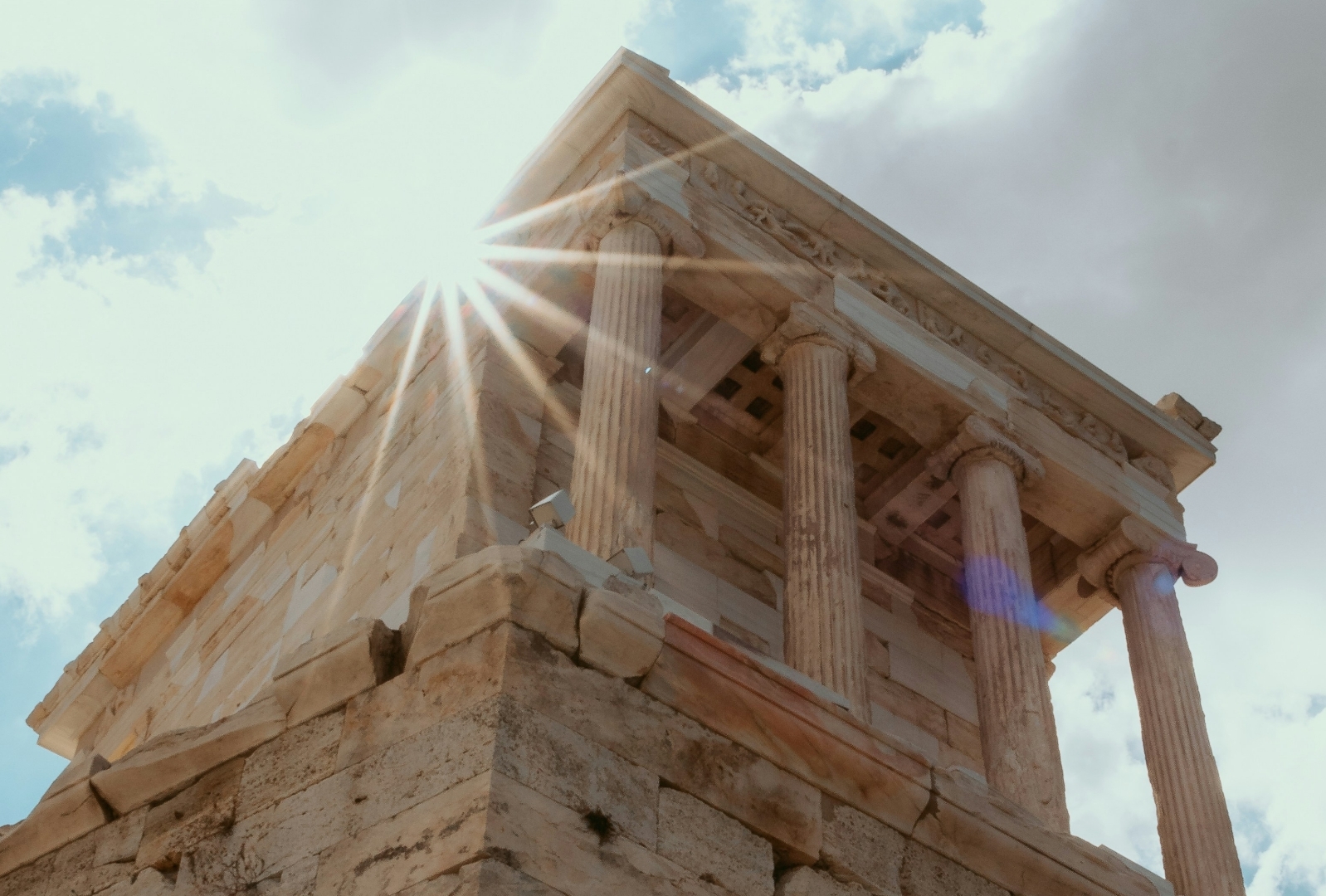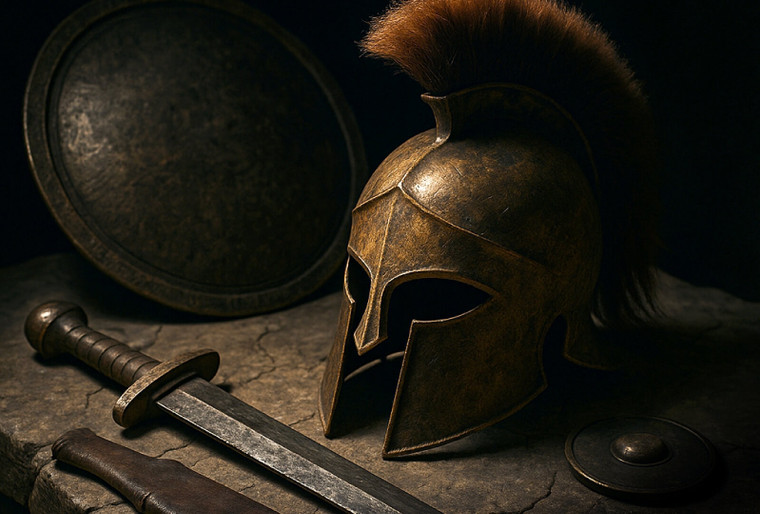Hero & Villain - 2 Lessons from History's Most Magnetic War Captain
Posted by Warrior Poet Society on Jun 26th 2025
Today we’re taking a break from guns and gear to bring you another Warrior Poet Profile from the pages of our past. If you came here for tactics and gunfighting, I’m sorry. But if you’re into history, character, and the deep stuff that makes us better protectors—the stuff that I love the most—then strap in.
This one’s personal. I wasn’t planning to cover this figure, mostly because the guy frustrates me. He’s equal parts genius and disaster. But the more I thought about him, the more haunted I became. So here we are.
Let me introduce you to Alcibiades—warrior, traitor, strategist, celebrity, and wrecking ball of ancient Athens.
The Magnetic Madness of Alcibiades
Alcibiades (say it with me: Al-suh-BYE-uh-deez) was born in 5th century BC Athens. He was:
• A kinsman of Pericles (The great Athenian statesman known as The First Athenian)
• A disciple, protégé, and battlefield companion of Socrates (for those of you that didn’t know, Socrates stacked bodies in his youth—there’s a fun history easter egg for you)
• Head and shoulders above his peers in charisma and battlefield brilliance
The guy was a rock star of his time: flowing hair, sculpted beard, unmatched charm, and tactical genius that earned him comparisons to Achilles and, later, Alexander the Great. He is probably one of the most magnetic and charismatic war captains of all time.
But behind the legend? There was a wake of broken loyalties, burned bridges, and eventual destruction.
The Context: Tides of War by Steven Pressfield
Much of this profile is drawn from Steven Pressfield’s historical novel Tides of War, which I highly recommend. It captures Alcibiades not just as a figure of fact, but as a force of personality.
Here’s a snapshot of the era:
• Athens and Sparta had crushed the Persians by 479 BC (think Battles of Thermopylae, Salamis, and Plataea)
• Athens ruled the sea, Sparta ruled the land.
• The Golden Age of Athens was in full swing—Parthenon, democracy, theater, and philosophy.
• But by 431 BC, Athens had grown too powerful, and war erupted: the Peloponnesian War.
• One man shaped that war more than anyone: Alcibiades.
He never lost a battle. He pulled off insane political comebacks. Athens exiled him, and he then went and fought for Sparta out of spite toward his exile—believing the Athens he loved was corrupted beyond repair. After leading Spartan forces in victory after victory alongside the famous Spartan military commander Lysander, Athens apologized and begged him to return.

Return he did, and he then turned the tide of war against the Spartans despite set backs from the commanders under him. With turning defeat into victory, his Athenian rivals feared his power and influence so they exiled him again, but he had supposedly slept with the wife of one of the Spartan kings, so he was not welcome back with them.
His people adored him—and hated him. Think celebrity meltdown meets civilizational collapse. Perhaps had he checked his arrogance and ambition, he might not have had the issues he had, thus I have two lessons for you.
Two Timeless Lessons
1. If You Idolize Someone, You Will Eventually Demonize Them
This truth hits hard.
“As the city loved him, so did I; as she hated him, I did too.” — Tides of War narrator, Polemides (Alcibiades’ friend and future assassin…in the book at least)
Jonathan Edwards once said, “People make poor messiahs.” When we elevate people too high, we inevitably discover they’re flawed. And when that pedestal cracks, we don’t just fall out of love—we turn on them.
• Idolize a pop star? Watch them break down.
• Idolize a father, pastor, or friend? Wait until they disappoint you.
• Idolize yourself? Disaster’s on the way.
Lesson: Don’t worship anyone but God. And don’t let anyone put you on a pedestal, either. You’ll let them down—and they’ll hate you for it. When you are let down or you let someone else down, do the right thing, humble yourself, and respond graciously. It’ll set you apart from other men and help you avoid disaster like Alcibiades.
2. Guard Your Ambition
Alcibiades was ambition incarnate. He could’ve ruled the world, but he couldn’t rule
himself. Ambition’s not bad. But unchecked, it becomes a disastrous fire.
There’s a tipping point when you no longer have ambition—it has you.
Ambition, when prioritized above faith, family, and integrity, will burn your house down
and you’ll have no choice but to run out unarmed to your demise, just like Alcibiades.
Lesson: Keep the hierarchy straight. For me, it’s:
⁃ God
⁃ Wife
⁃ Kids
⁃ Close friends
⁃ Then… purpose, work, ambition
If your ambition threatens what matters most, it’s time to rein it in.
Conclusion: The Tragic Genius
Alcibiades was brilliant. Bold. A born leader. But he was also reckless, self-absorbed, and enslaved to his appetites. He pulled Athens toward empire—and right into ruin.
Hero and villain. Inspiration and cautionary tale. That’s why he stuck with me. That’s why I had to tell you his story.
I encourage you to pick up Tides of War by Steven Pressfield. I’ve listed it in our Warrior Poet Society Amazon Store here. It’s historical fiction with bite. It’s gritty, philosophical, and packed with lessons for today’s warrior poets.
Remember, Train hard. Train smart. And learn from history.

